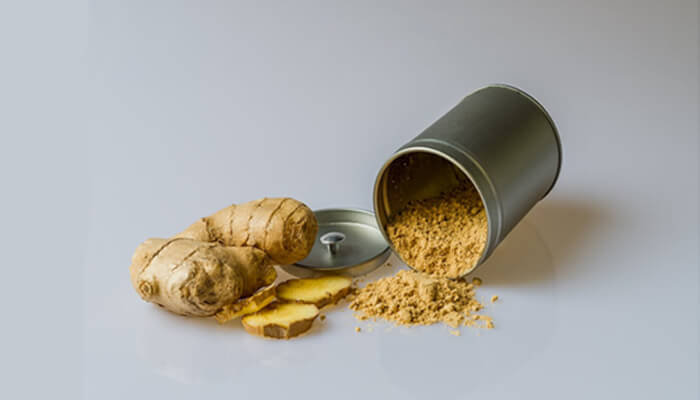Natural cures and holistic health have increased in popularity in recent years. Turmeric, a vibrant yellow spice frequently used in Indian cuisine, is a celebrity in natural medicine. The potential health advantages of turmeric have received extensive attention, and one of the most well-liked methods of utilizing this power is through the best turmeric supplement. In this article, we’ll examine how turmeric supplements might be your health partner and offer a wealth of advantages for your general well-being.
The Power of Turmeric
Ayurvedic medical systems like Ayurveda have used the South Asian native plant turmeric (Curcuma longa) for centuries. Curcumin is the primary bioactive component of turmeric that gives it its health-promoting qualities. Curcumin is a beneficial supplement to your daily health regimen because it is a potent anti-inflammatory and antioxidant.
1. Anti-inflammatory Properties:
The body’s natural response to injury or infection is inflammation. Chronic inflammation, however, has been linked to a number of diseases, such as cancer, heart disease, and neurological disorders. Strong anti-inflammatory effects found in curcumin can help fight chronic inflammation and possibly lower the risk of developing certain diseases.
2. Antioxidant Benefits:
Free radicals are unsteady molecules that can harm cells, speed up aging, and cause a number of diseases. With its strong antioxidant content, turmeric aids in disarming these dangerous substances and shielding your cells from oxidative stress. This can lessen the chance of developing chronic diseases and slow aging.
3. Pain Relief:
The anti-inflammatory benefits of turmeric also include pain alleviation. Turmeric supplements are frequently used to treat arthritic symptoms and reduce joint discomfort. Turmeric may be as effective as other anti-inflammatory medications without adverse side effects.
4. Digestive Health:
Bile helps with digestion, and turmeric is thought to boost bile production. It can lessen the discomfort of gas, bloating, and indigestion. Turmeric may also promote the well-being of the gut microbiota, which is essential for general digestive health.
5. Brain Health and Cognitive Function:
The ability of turmeric to promote brain health and cognitive performance is a subject of considerable interest. The growth hormone known as brain-derived neurotrophic factor (BDNF), which is associated with better brain function and a decreased chance of developing brain illnesses, may help enhance brain levels with curcumin.
6. Heart Wellness:
Heart disease is the most common cause of mortality in the world, yet turmeric may provide some protection. It can enhance the performance of your blood vessel’s endothelium, which is crucial for controlling blood pressure and blood clotting. Turmeric may support a healthier cardiovascular system by improving endothelial function.
7. Cancer Prevention:
Some studies indicate that curcumin may have cancer-fighting abilities, but additional research is required. It can stop the spread of tumors and the proliferation of cancer cells. The anti-inflammatory and antioxidant properties of turmeric are thought to play a role in its potential to prevent cancer.
8. Skin Health:
Turmeric’s anti-inflammatory and antioxidant qualities also help your skin. Turmeric supplements sometimes treat skin issues like psoriasis, eczema, and acne. Minimizing aging symptoms may also encourage a more youthful appearance.
Choosing the Right Turmeric Supplement
To get the most out of turmeric supplements, it’s critical to pick the proper one. Observe the following elements:
1. Curcumin Content:
Look for supplements with a high concentration because this substance gives turmeric its therapeutic effects.
2. Bioavailability:
Curcumin is not well absorbed by the body when taken alone. Pick supplements with piperine, a substance included in black pepper that can improve the absorption of curcumin.
3. Quality and Purity:
Choose well-known brands that follow stringent quality and purity guidelines. Ensure the supplement is tested for potency and quality by a third party.
4. Form:
Supplements containing turmeric are available in various formats, such as capsules, powders, and liquid extracts. Select the format that best suits your tastes and way of life.
5. Dosage:
Follow the dosing instructions on the product’s label or speak with a healthcare provider to find the dosage that will work best for you.
6. Interactions:
Supplements containing turmeric may interact with some medicines. Before including turmeric in your regimen, if you take medication, talk to your doctor.
Making Use of Turmeric in Your Routine
Supplements containing turmeric are not the only way to benefit from this exceptional spice. You can incorporate turmeric into your diet by incorporating it into your cooking. Adding turmeric can benefit curries, soups, stir-fries, and even smoothies. The curcumin level of turmeric powder is relatively low; therefore, supplements might be a more practical choice if you’re looking for therapeutic amounts.
Potential Side Effects and Precautions
When used moderately, turmeric is mostly safe for most people, but some people may experience negative effects. These include potential gastrointestinal problems, allergic reactions, and drug interactions. Before beginning any new supplement, it’s important to seek medical advice, especially if you have underlying health issues, are pregnant, or are nursing.
Conclusion
Curcumin, the main ingredient in turmeric, has many possible health advantages. Supplements containing turmeric can be an excellent health ally, helping reduce inflammation and pain while promoting brain health and skin renewal. However, it’s crucial to pick supplements of the highest caliber and speak with a medical expert to determine the best course of action for your particular health objectives. Turmeric is a useful supplement to your holistic health journey because of its long history in traditional medicine and promising scientific study. Accept the power of turmeric and tap into its ability to improve your general health.



